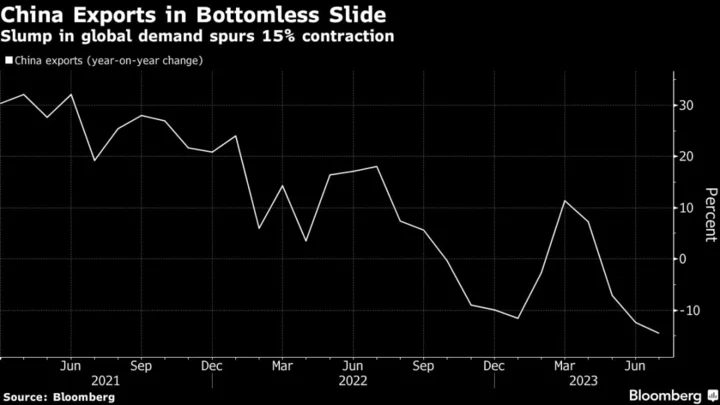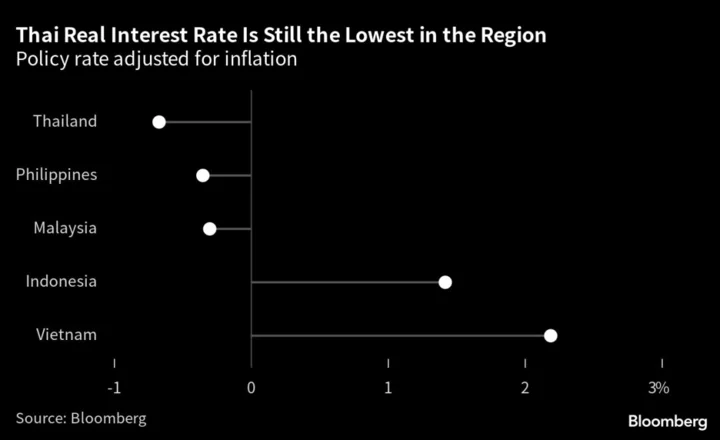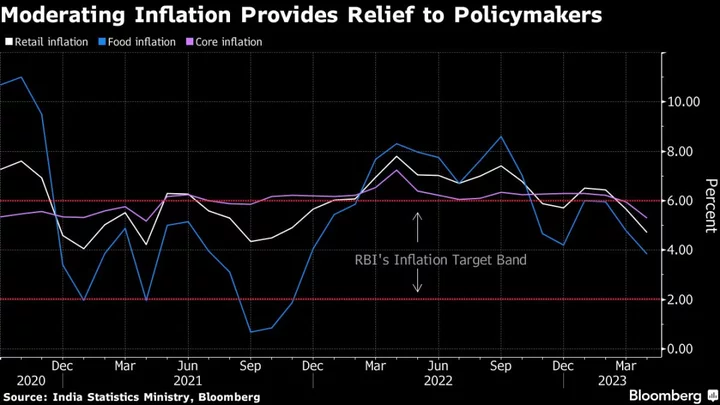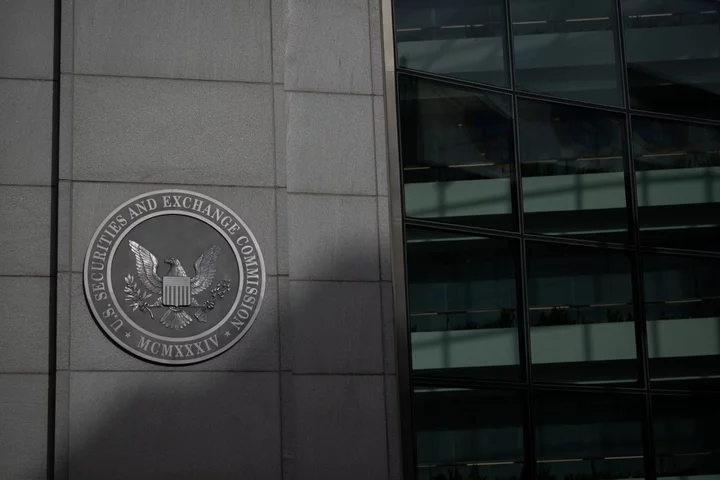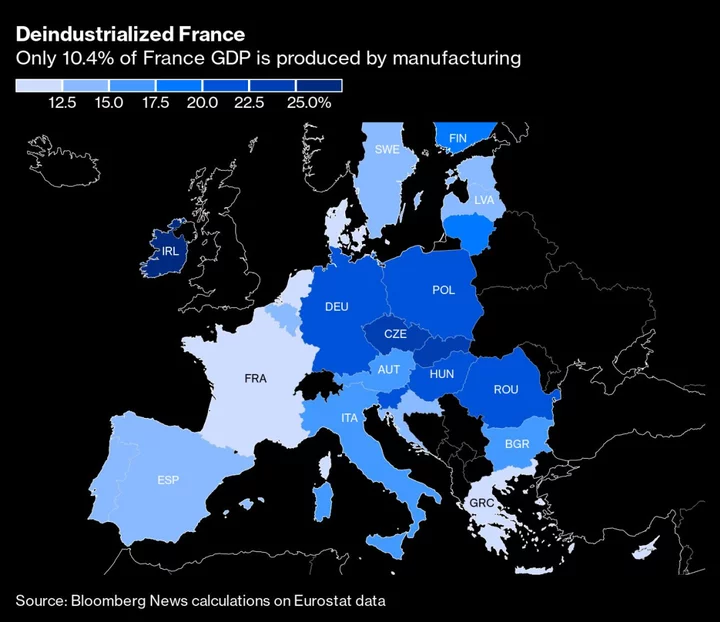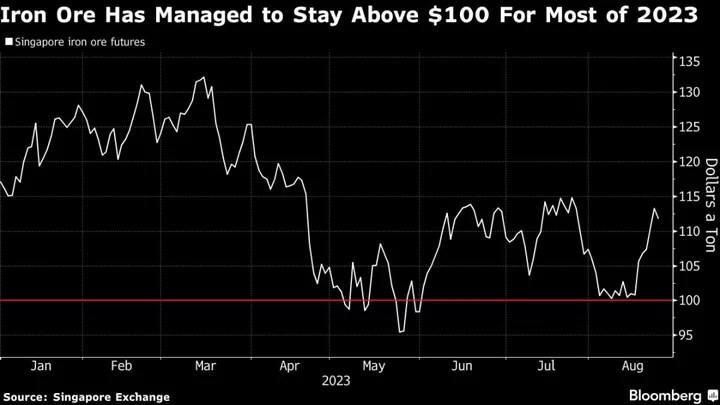A selloff in emerging markets accelerated Tuesday after data releases from China to Hungary underscored the price nations are paying for disinflation: a deeper slowdown in economic growth than initially expected.
The MSCI Emerging Market Index of stocks headed for the lowest close in almost four weeks and breached its 50-day moving average. Its currency-index counterpart also traded at the weakest level since July 10, with South Africa’s rand leading losses.
Much of the bullish case for emerging markets this year was predicated on a growth recovery led by China, which successive data releases have shown to be patchy at best and a non-starter at worst. Data released Tuesday showed exports in July tumbled almost 15% for the quickest contraction in a year, reflecting a slump in global demand. At the same time, imports sank at more than double the pace economists forecast, showing weakness in domestic consumer demand. The country is already battling deflation, the extent of which will be revealed in a report on Wednesday.
Sobering China Trade Numbers Have Implications Going Beyond Yuan
“It’s still early stage, but it could be a pivotal week for the dollar posting solid gains and breaching key technical pivots,” said Piotr Matys, a currency analyst at InTouch Capital Markets in London. “The rand is the main victim of global risk aversion fueled by concerns about China.”
Chinese stocks listed in Hong Kong dropped, with both the technology index and broader enterprises index falling more than 2.2% each. That sent the emerging-market gauge lower for the fifth time in six days and closer to falling below the psychological 1,000 threshold. Chinese bonds tracked Treasuries higher as investors took refuge in higher-quality debt on economic concerns.
In Hungary, which has the highest interest rate in the European Union, inflation dipped below 20% for the first time in 11 months. The government expects the rate to fall below 10% by October.
While that sounds like good news, the subtext is less reassuring. Hungarian consumer prices rose faster than expected on a month-on-month basis and the country is in recession, with three quarterly contractions already reported. And Hungary’s budget has slipped into a record deficit. The forint joined other emerging-market currencies and declined against the dollar.
Delayed Impact
With the macro picture shifting from worries over inflation to concern over the delayed impact of hawkish policies, idiosyncratic stories dictated some local market moves.
Turkey’s policymakers will raise interest rates only in modest increments and pause at a benchmark rate of 20%, well below the central bank’s year-end inflation forecast of 58%, Bank of America Corp. said. The lira posted modest losses.
In Gabon, most dollar bonds fell. The western African nation on Monday had to increase the yield it offered on a $500 million blue bond to garner enough investor interest. That sale was part of a so-called debt-for-nature swap that will be used to finance a buyback of its existing dollar-denominated bonds and help support marine conservation in the country.
Data released Tuesday showed Chile’s inflation easing broadly in July, in line with forecasts. Minutes of Brazil’s latest central bank meetings showed policymakers see a faster pace of interest rate cuts as unlikely.
--With assistance from Maria Elena Vizcaino.
(Updates the market moves in 2nd paragraph, latest economic data releases in last paragraph)

